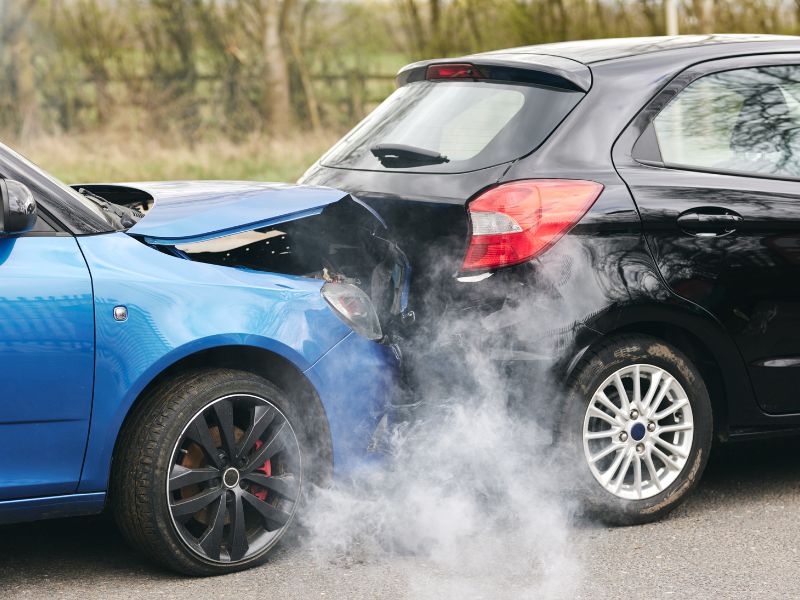
Why is it important to have the correct insurance in place?
Motor Insurers Bureau.It is illegal to drive a vehicle on the road or public place without insurance. Section 143 of the Road Traffic Act 1988 creates an absolute offence. This means that the prosecution does not need to prove any intention to drive without insurance, a mere fact that a policy was not in place at the time of the accident is sufficient. It is also important that the correct purpose of your driving is noted, whether it is for commuting or business purposes.
It is an offence to permit or allow someone to use a vehicle if they are not covered by a valid policy of insurance. As a result, the offence will be the same as though you were driving the vehicle. If, however you were the driver of the vehicle and are accused of driving without insurance, you will usually be offered a conditional offer of fixed penalty by the policy which is 6 points in addition to a fixed fine.
If you are convicted or enter a guilty plea to driving without insurance at court, the sentencing is between 6-8 penalty points in addition to unlimited fine which is means tested (this is when your income will be taken into consideration). In serious cases the court has the discretion to consider a period of disqualification instead of penalty point.
What if I have had an accident and the other vehicle driver is uninsured?
When an accident causes damage and injury and the responsible driver is uninsured, a claim can be made to the Motor Insurers Bureau (MIB). The MIB is an organisation that was set up in 1946 to compensate people affected by negligent uninsured and untraced drivers. MIBs objective is to reduce the impact and level of uninsured driving in the UK and to compensate those who have been affected by untraced or uninsured motorists. The MIB is financed by the motor insurers with the intention of compensating individuals who have been involved in accidents with the uninsured drivers or those who cannot be traced.
If you have been involved in a road traffic accident with an untraced or uninsured driver, you could make a claim through the MIB. The MIB could compensate you for your injury plus any property damage and financial losses you have suffered due to the accident. However, you must prove that the uninsured driver was at fault for the accident due to them breaching their duty of care to road users.
What accidents does the MIB cover?
The MIB cover all types of road traffic accidents, such as:
Car Accidents;
Cycle Accidents with another road vehicle;
Motorcycle Accidents;
Van Accidents;
Pedestrian accidents;
HGV Vehicles; and
Passenger accidents.
If you have had a similar type of accident involving an uninsured or untraceable driver, you may be able to seek compensation by making an MIB claim. Please call our team to discuss your claim in more detail.

How Long Do I Have to Make an MIB Claim?
An MIB claim must be made within a period of three years. The three-year time limit may either start from the date of the accident or from when you became aware that another road user’s failings caused or contributed to your injuries.
The requirement to start a claim within three years of your accident is applied by law under the Limitation Act 1980. This time limit applies in almost all circumstances, though a small number of exceptions can apply. These exceptions may apply to anyone under the age of 18 or anyone who has a reduced mental capacity.
How to make an MIB claim following an accident with an Uninsured driver?
Although it may feel overwhelming, there are several steps you may wish to take before claiming compensation against an uninsured driver. Best way forward is to ensure you obtain details of the vehicle:
such as the car registration number, vehicle model and colour;
Obtain details of the driver, such as their name and telephone number;
Gather evidence to support your MIB claim that another driver was responsible, such as witness details, photographs, CCTV footage and dash cam footage;
Ensure you report the accident to the police within 24 hours if the police were not present at the scene of the accident; and
You must document what occurred at the car accident scene as accurately as possible.
These steps once taken will help in the event that the uninsured driver is unwilling to take responsibility. An experienced road traffic accident solicitor could help you go through the process of claiming through the MIB. For more information on making an MIB claim and further information on MIB pay-outs, please contact our team of lawyers.
What Costs Are Covered in an MIB Claim?
The MIB is responsible for paying compensation to those individuals who have not been able to pursue a claim against a third party. It may be that the driver s uninsured or fled the accident scene without exchange of any information.
The MIB run three specific schemes designed to help the public following an accident with an uninsured or untraceable driver:
The uninsured drivers’ scheme – this compensation plan is activated when the driver that causes or contributes to the accident is uninsured.
The untraced drivers’ scheme – this is when the driver responsible for the car accident or vehicle accident flees and can’t be traced.
Green card scheme – this is activated when the accident is caused or contributed to by foreign drivers.
Can I make an MIB claim for injuries?
If you sustained a whiplash injury in an accident with an uninsured driver, you would be able to make an MIB claim for your injuries. Additionally, any psychological or other physical injury can also be compensated for. In establishing your injuries, we will obtain medical evidence. The amount suitable for the extent of your injuries is calculated by our team of lawyers during the process of your claim.
As well as taking a look at medical evidence that provides details of the nature of your injury, we will also look at a publication called the Judicial College Guidelines (JCG). The JCG is a list of injuries, with helpful descriptions of each. The descriptions are all accompanied by a range of monetary figures that relate to how much a general damages settlement could be worth for each injury. However, the figures are merely guidelines. Your claim will need to be addressed directly on a bespoke basis by our lawyers to obtain a more accurate valuation.
Can I claim for special damages and what are some of the examples of such a claim?
‘Special damages’ are those damages that occur as a consequence to an injury sustained following an accident with a negligent uninsured third party. In other words, in addition to general damages you may be entitled to consequential losses following an incident which was caused as a result of another road users negligence.
Here are some examples of what may be included as special damages:
• Loss of earnings – if you were injured to the point of being unable to work, whether the situation is temporary or permanent, you can claim compensation for the amount of money you could or would have earned during this period;
• Damage to property – This figure can include costs of the repairs or replacement of certain items that sustained damage during the accident in which you were injured.
• Medical costs – This could include prescription medication. Additionally, you may be able to include costs for private healthcare, generally only if the same treatment was not available for free on the NHS.
If you decide to claiming through the MIB, their first offer could come relatively early in the process. However, you are under no obligation to accept this early offer. We always advise seeking legal advice before accepting an offer for personal injury compensation. Get in touch with us today for further advice on the matter.
How will my claim under the MIB be funded?
Your claim will be dealt with on a ‘No Win No Fee’ basis. We only get paid once you receive your compensation. We take a standard fee of 35% as the cost towards our legal fees. There are no hidden charges and VAT is already included in this amount.



